Threats come after Israeli air force strikes on storehouses and radar systems at Damascus airport, which reportedly killed 21, including 12 Iranians
By TOI STAFF and JUDAH ARI GROSS
Syria’s envoy to the United Nations warned Tuesday that if the world body did not halt Israeli strikes on his country, Syria would retaliate with an attack on Ben Gurion International Airport outside Tel Aviv.
Speaking at the UN Security Council after a series of IAF airstrikes on Sunday and Monday — most of them launched after an Iranian missile fired from Syria was intercepted over the Israeli Golan Heights on Sunday afternoon — Bashar Jaafari said Israel was only able to act freely in Syria because it had the backing of the US, UK and France in the Security Council.
Syria’s envoy to the United Nations warned Tuesday that if the world body did not halt Israeli strikes on his country, Syria would retaliate with an attack on Ben Gurion International Airport outside Tel Aviv.
Speaking at the UN Security Council after a series of IAF airstrikes on Sunday and Monday — most of them launched after an Iranian missile fired from Syria was intercepted over the Israeli Golan Heights on Sunday afternoon — Bashar Jaafari said Israel was only able to act freely in Syria because it had the backing of the US, UK and France in the Security Council.
Syrian state media Sana quoted Jaafari as saying that if the UN Security Council didn’t adopt measures stop Israel, “Syria would practice its legitimate right of self-defense and respond to the Israeli aggression on Damascus International Airport in the same way on Tel Aviv airport.”
“Isn’t it time now for the UN Security Council to stop the Israeli repeated aggressions on the Syrian Arab republic territories?” Jaafari said.
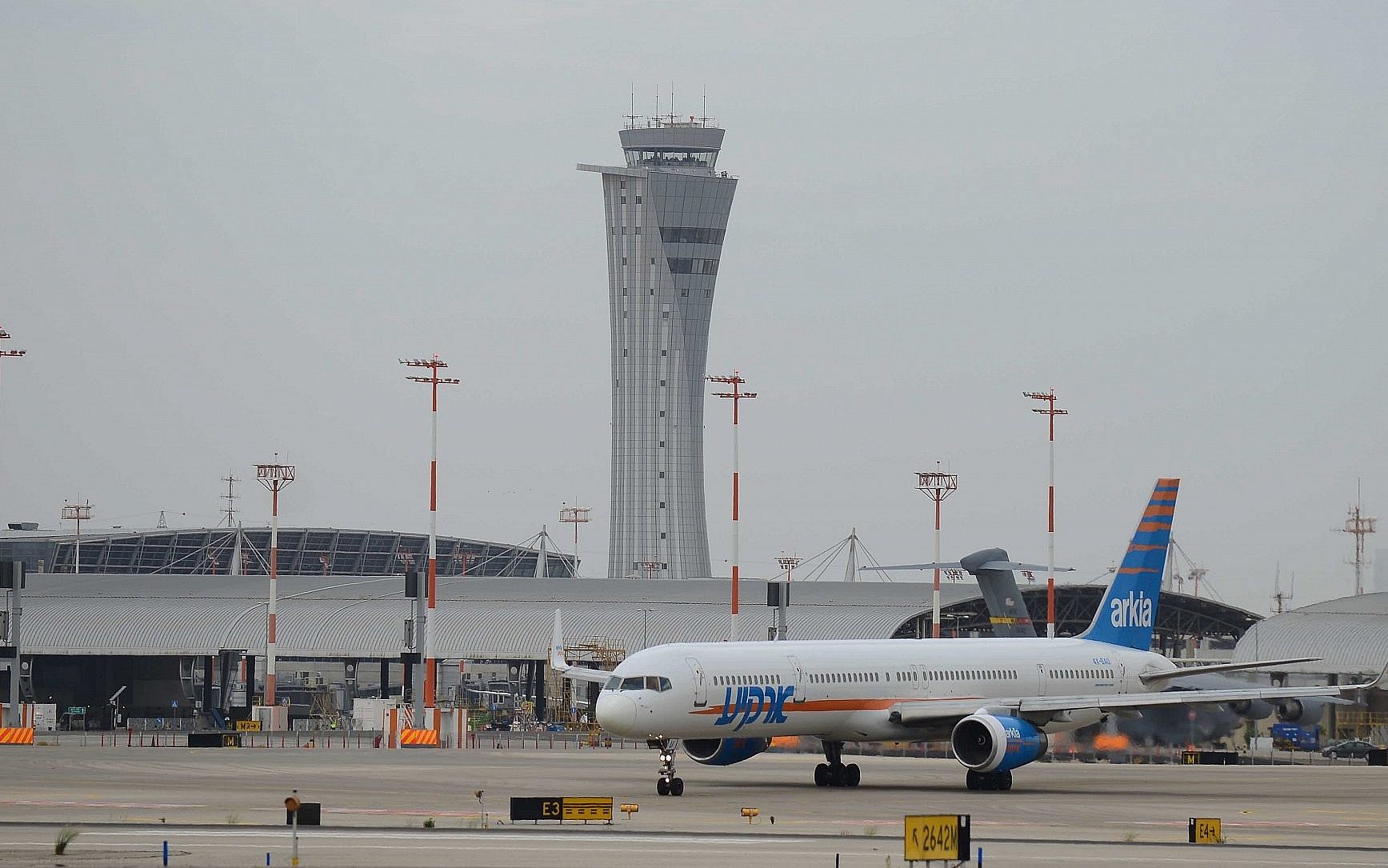
While Israel has repeatedly hit targets inside Syria in recent years to try to stop the transfer of arms to Hezbollah and the entrenchment of Iranian forces, Syria has rarely responded.
It’s unclear if Syria has the ability to strike at Ben Gurion Airport; any attempt to do so would be viewed by Israel as a major escalation.
On Sunday, Israel reportedly conducted a rare daylight missile attack on Iranian targets in Syria. In response, Iran fired a surface-to-surface missile at the northern Golan Heights, which was intercepted by the Iron Dome missile defense system over the Mount Hermon ski resort, according to the Israel Defense Forces.
Hours later, in the predawn hours of Monday morning, the Israel Air Force launched retaliatory strikes on Iranian targets near Damascus and on the Syrian air defense batteries that fired upon the attacking Israeli fighter jets, the army said.
Satellite images released by an Israeli firm on Tuesday appeared to show extensive damage at Damascus International Airport.
The photographs published by ImageSat indicated storehouses and radar systems at the Syrian airport were destroyed in the strikes.
Twenty-one people were killed in the Israeli raids in Syria early on Monday, 12 of them Iranian fighters, a Britain-based Syrian war monitor said earlier on Tuesday.
The Syrian Observatory for Human Rights initially reported the death toll from the Israeli strikes to be 11. But on Tuesday, the war monitor said the number had risen to 21, making it one of the deadliest attacks by Israel in Syria.
According to SOHR, 12 of those killed were members of Iran’s Islamic Revolutionary Guard Corps; six were Syrian military fighters; and the other three were other non-Syrian nationals.
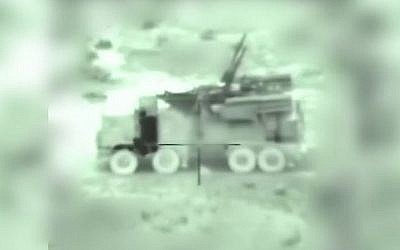
The IDF said Monday that Iranian troops in Syria launched their missile at the Golan in a “premeditated” attack aimed at deterring Israel from conducting airstrikes against the Islamic Republic’s troops and proxies in Syria.
Israeli troops on Monday were put on high alert in the north.
Military spokesperson Jonathan Conricus said the three response sorties destroyed a number of Iranian intelligence sites, training bases and weapons caches connected to the Quds Force, the expeditionary arm of Iran’s Islamic Revolutionary Guard Corps.
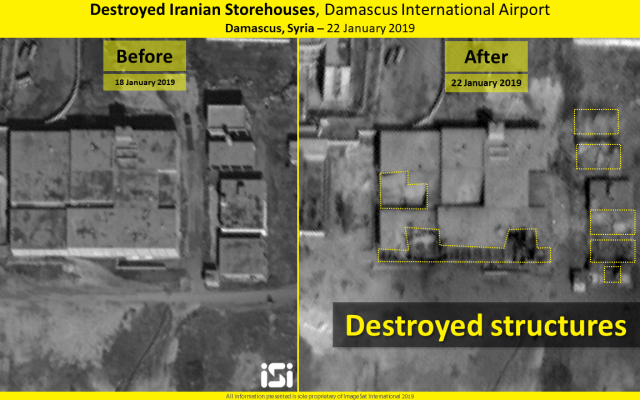
According to Conricus, one of the targets of the raids was “the main storage hub for Quds Force.”
On Monday morning, the IDF also released video footage of its airstrikes on Syrian air defenses, including on social media.
“We understand that the Iranians are trying to change the context and deter us from our policy and our strategy of fighting Iranian troops in Syria,” Conricus said. “They thought they could change the rules of engagement. Our response was a rather clear one, with a message to Iran and Syria that our policies have not changed.”

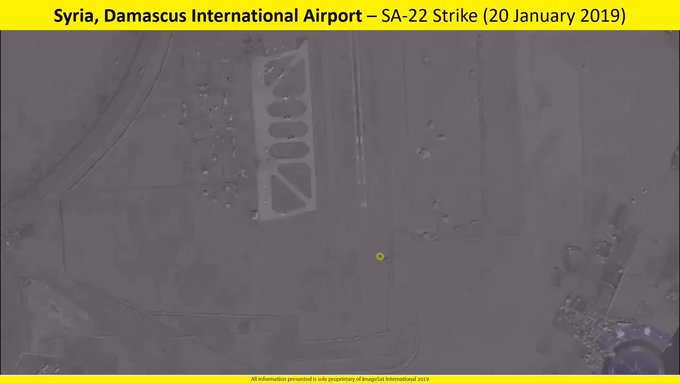

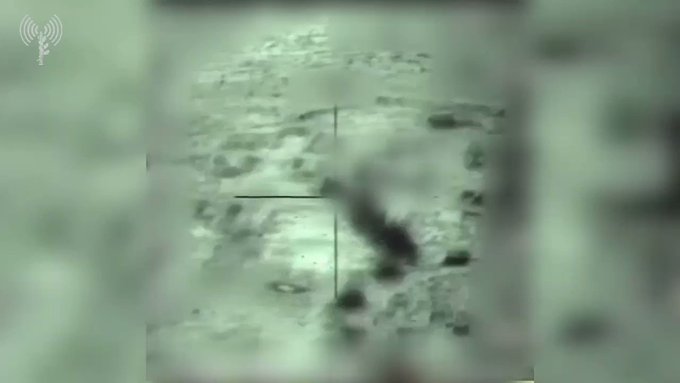


Leave a Reply
You must be logged in to post a comment.